Hyundai Kona vs VW ID.4 - Differences and prices compared
Compare performance (218 HP vs 340 HP), boot space and price (23100 £ vs 34600 £ ) at a glance. Find out which car is the better choice for you – Hyundai Kona or VW ID.4?
Costs and Efficiency:
Price and efficiency are often the first things buyers look at. Here it becomes clear which model has the long-term edge – whether at the pump, the plug, or in purchase price.
Hyundai Kona has a clearly advantage in terms of price – it starts at 23100 £ , while the VW ID.4 costs 34600 £ . That’s a price difference of around 11515 £.
In terms of energy consumption, the advantage goes to the Hyundai Kona: with 14.60 kWh per 100 km, it’s hardly perceptible more efficient than the VW ID.4 with 15.60 kWh. That’s a difference of about 1 kWh.
As for electric range, the VW ID.4 performs barely noticeable better – achieving up to 569 km, about 55 km more than the Hyundai Kona.
Engine and Performance:
Under the bonnet, it becomes clear which model is tuned for sportiness and which one takes the lead when you hit the accelerator.
When it comes to engine power, the VW ID.4 has a noticeable edge – offering 340 HP compared to 218 HP. That’s roughly 122 HP more horsepower.
In acceleration from 0 to 100 km/h, the VW ID.4 is clearly quicker – completing the sprint in 5.40 s, while the Hyundai Kona takes 7.80 s. That’s about 2.40 s faster.
In terms of top speed, the Hyundai Kona performs somewhat better – reaching 210 km/h, while the VW ID.4 tops out at 180 km/h. The difference is around 30 km/h.
There’s also a difference in torque: VW ID.4 pulls clearly stronger with 679 Nm compared to 265 Nm. That’s about 414 Nm difference.
Space and Everyday Use:
Beyond pure performance, interior space and usability matter most in daily life. This is where you see which car is more practical and versatile.
Both vehicles offer seating for 5 people.
In curb weight, Hyundai Kona is clearly lighter – 1370 kg compared to 1975 kg. The difference is around 605 kg.
In terms of boot space, the VW ID.4 offers somewhat more room – 543 L compared to 466 L. That’s a difference of about 77 L.
In maximum load capacity, the VW ID.4 performs somewhat better – up to 1575 L, which is about 275 L more than the Hyundai Kona.
When it comes to payload, VW ID.4 a bit takes the win – 551 kg compared to 490 kg. That’s a difference of about 61 kg.
Who wins the race in the data check?
The VW ID.4 is decisively ahead in the objective data comparison.
This result only shows which model scores more points on paper – not which of the two cars feels right for you.
Costs and Consumption
View detailed analysis
Engine and Performance
View detailed analysis
Dimensions and Body
View detailed analysis
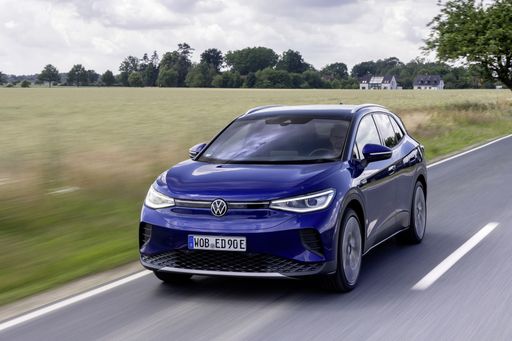
VW ID.4
Hyundai Kona
The Hyundai Kona wears its personality on the outside with bold styling and sprightly handling that turns city driving into something a little more fun than a commute. It blends practical space, modern tech and sensible running costs into a compact, stylish package — a smart pick if you want flair without paying luxury prices.
details



VW ID.4
The VW ID.4 is a calm, roomy electric SUV that turns everyday driving into a quietly confident experience, its practical packaging and smooth manners tailored perfectly for family life. Volkswagen's solid build and intuitive interior tech mean you get electric practicality without the sci‑fi theatrics, making the ID.4 a sensible, surprisingly likable choice for most buyers.
details
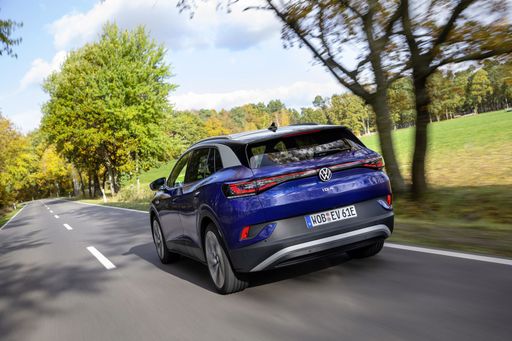
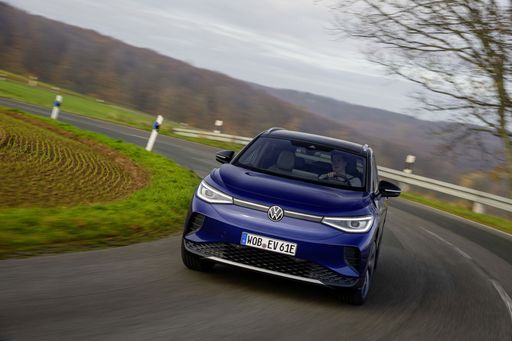
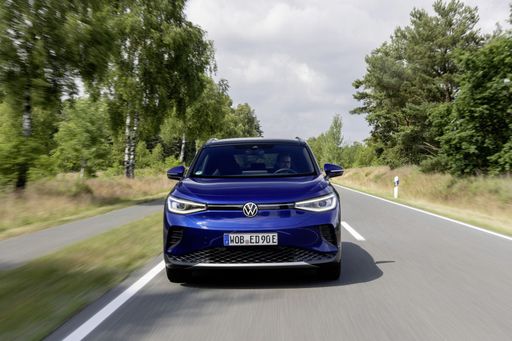
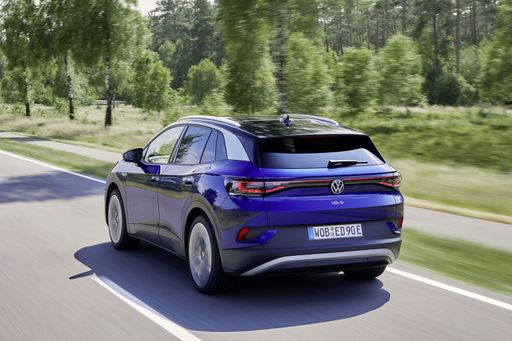

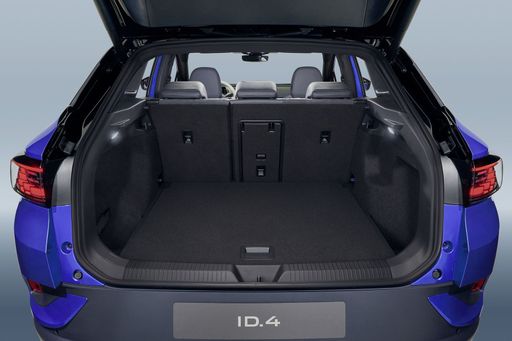
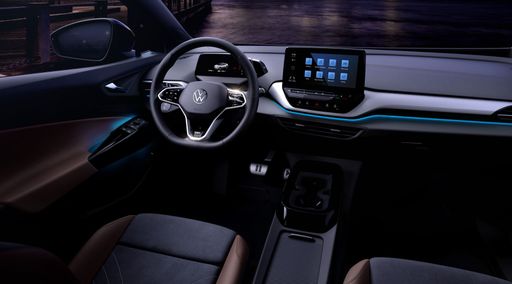
Costs and Consumption |
|
|---|---|
|
Price
23100 - 41600 £
|
Price
34600 - 47200 £
|
|
Consumption L/100km
4.6 - 7 L
|
Consumption L/100km
-
|
|
Consumption kWh/100km
14.6 - 16.8 kWh
|
Consumption kWh/100km
15.6 - 17 kWh
|
|
Electric Range
377 - 514 km
|
Electric Range
356 - 569 km
|
|
Battery Capacity
1.3 - 65.4 kWh
|
Battery Capacity
52 - 77 kWh
|
|
co2
0 - 163 g/km
|
co2
0 g/km
|
|
Fuel tank capacity
38 - 47 L
|
Fuel tank capacity
-
|
Dimensions and Body |
|
|---|---|
|
Body Type
SUV
|
Body Type
SUV
|
|
Seats
5
|
Seats
5
|
|
Doors
5
|
Doors
5
|
|
Curb weight
1370 - 1773 kg
|
Curb weight
1975 - 2248 kg
|
|
Trunk capacity
466 L
|
Trunk capacity
543 L
|
|
Length
4350 - 4385 mm
|
Length
4582 - 4584 mm
|
|
Width
1825 mm
|
Width
1852 mm
|
|
Height
1580 - 1585 mm
|
Height
1619 - 1634 mm
|
|
Max trunk capacity
1300 L
|
Max trunk capacity
1575 L
|
|
Payload
420 - 490 kg
|
Payload
515 - 551 kg
|
Engine and Performance |
|
|---|---|
|
Engine Type
Electric, Petrol, Full Hybrid
|
Engine Type
Electric
|
|
Transmission
Automatic, Manuel
|
Transmission
Automatic
|
|
Transmission Detail
Reduction Gearbox, Manual Gearbox, Dual-Clutch Automatic
|
Transmission Detail
Reduction Gearbox
|
|
Drive Type
Front-Wheel Drive, All-Wheel Drive
|
Drive Type
Rear-Wheel Drive, All-Wheel Drive
|
|
Power HP
115 - 218 HP
|
Power HP
170 - 340 HP
|
|
Acceleration 0-100km/h
7.8 - 11.9 s
|
Acceleration 0-100km/h
5.4 - 9 s
|
|
Max Speed
162 - 210 km/h
|
Max Speed
160 - 180 km/h
|
|
Torque
200 - 265 Nm
|
Torque
310 - 679 Nm
|
|
Number of Cylinders
3 - 4
|
Number of Cylinders
-
|
|
Power kW
85 - 160 kW
|
Power kW
125 - 250 kW
|
|
Engine capacity
998 - 1598 cm3
|
Engine capacity
-
|
General |
|
|---|---|
|
Model Year
2024 - 2025
|
Model Year
2023 - 2025
|
|
CO2 Efficiency Class
A, D, C, E, F
|
CO2 Efficiency Class
A
|
|
Brand
Hyundai
|
Brand
VW
|
Is the Hyundai Kona offered with different drivetrains?
Available configurations include Front-Wheel Drive or All-Wheel Drive.




